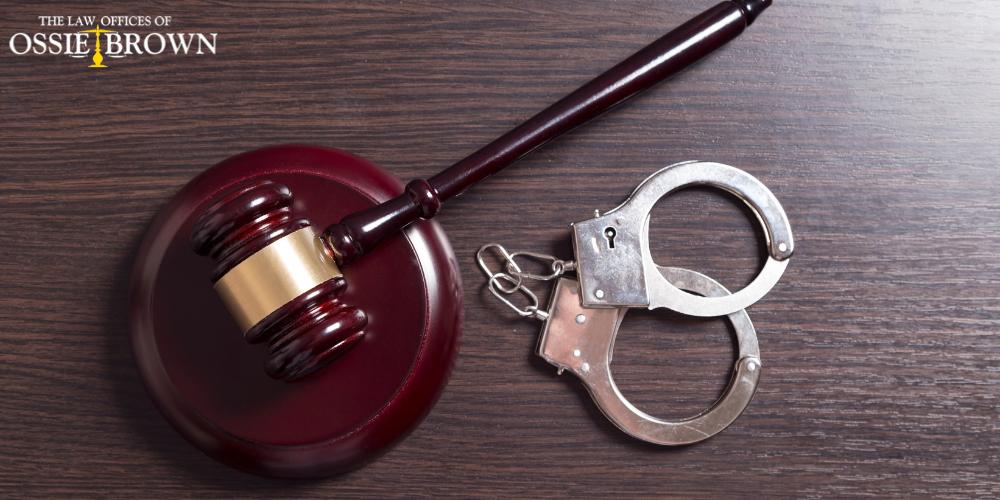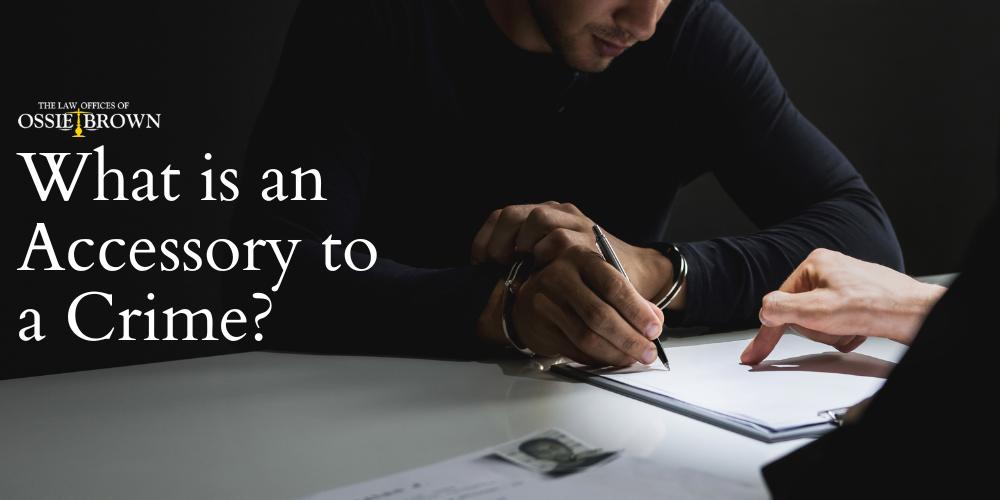Some offenders are able to plan and commit crimes all on their own. Meanwhile, other offenders need help before and after a crime is committed. According to criminal law, providing help or assistance in the commission of a crime is called being an accessory to a crime. Being an accessory to a crime is very similar to aiding and abetting. But the main difference between all these crimes is when the person provided help, support, or encouragement. Below, Baton Rouge criminal defense attorneys at The Law Offices of Ossie Brown discuss aiding, abetting, and accessory charges and what kind of defenses an offender could possibly use in their favor.
It is your legal right to receive legal counsel if you are facing criminal charges of any kind. Our legal team has the skill and experience to defend people charged with theft, drunk driving, aggravated assault, domestic violence, sex crimes, drug crimes, and so much more. Call 225-343-1111 to schedule a free consultation at our law firm today.
What is an Accessory to a Crime?
An accessory to a crime is a person who helps someone else commit a criminal act. This person is usually called an “accomplice” or an “accessory,” while the person who directly commits a crime is called the “principal.” There are two main types of accessory to a crime, which are characterized based on when the defendant assisted in the commission of a criminal act.
- Accessory Before the Fact: Someone provides help prior to the commission of a crime. Most state laws consider this type of accessory as part of the underlying crime.
- Accessory After the Fact: Someone provides help to the principal offender after the commission of a crime. For example, the accessory could help someone escape arrest via a getaway car after the person committed the crime. Many state laws compare accessory after the fact to obstruction of justice, because it involves interfering with the criminal justice system somehow.
Involvement in a crime doesn’t always mean that someone was actually present at the crime scene. The accessory could be in another state while still helping the main offender follow through with the crime committed.
What is Aiding and Abetting?
Aiding and abetting are different criminal charges that share many similarities with an accessory crime charge.
- Aiding is supporting or helping someone commit a criminal offense.
- Abetting is encouraging or inducing someone to commit a criminal offense.
Many state laws lump these two definitions into one single criminal act: “aiding and abetting.” Aiding and abetting is very similar to accessory before the fact.
Common Elements in All Three Crimes
All three crimes overlap quite a bit. A prosecution must prove all of the following elements beyond a reasonable doubt in order to convict someone of aiding, abetting, or being an accessory before the fact:
- A criminal act was committed.
- The accused intentionally provided assistance, encouragement, support, and/or counsel to the principle so that they would commit the crime.
- The accused had intent to make the commission of a crime easier or smoother.
- Lastly, the accused acted before the crime was committed.
In order for a person to receive an accessory after the fact conviction, the prosecution must prove the following elements beyond a reasonable doubt:
- The defendant knew that the principal committed a crime.
- After the commission of a crime, the defendant aided the principal with the intent of avoiding or preventing arrest, trial, or punishment.
The main elements in all three of the crimes are intent, knowledge, and assistance. Generally, all of these elements have to be present in order to get a person charged with aiding, abetting, and/or accessory after the fact.

Aiding, Abetting, and Accessory Penalties in Louisiana
Does indictment mean jail for being an accessory to a crime in Louisiana?
Louisiana is different from many other states in that state law considers all those who aid and abet as principal offenders. So if you assist or encourage someone to commit a criminal offense, you will likely receive the same penalties as the principal offender. Specific penalties vary on the type of crime committed. If you help or encourage someone to commit a robbery, for example, you will likely receive simple robbery penalties of up to 7 years behind bars and a maximum fine of $3,000.
A Louisianan who has been convicted of accessory after the fact is not held to the same liability as the person who committed the original crime. According to Louisiana state law (RS 14:25), they will face up to 5 years in state prison, with or without hard labor, and a maximum fine of $500. The law also states that an accessory after the fact cannot receive a sentence of more than half of the maximum penalty for the principal offender.
Possible Defenses for Being an Accessory to a Crime, Aiding, and Abetting
If you have been found guilty of aiding, abetting, or an accessory charge, you need strong legal representation on your side. Baton Rouge criminal defense lawyers at the Law Offices of Ossie Brown can potentially use the following defenses in your favor:
- Duress: If the main offender threatened you or acted violently against you in order to convince you to provide assistance in a crime, then you could claim duress.
- No Knowledge or Intent: Knowledge and intent are crucial elements of these crimes. If you can prove that you truly had no knowledge of or intent to help someone commit a felony, then you could potentially avoid conviction or receive a lesser sentence.
- Bystander: If you were merely a bystander before or after the crime was committed, and therefore you didn’t play any role in the crime, then you could potentially use this as a defense.
- Withdrawal: If you withdrew your assistance at any point before or after the crime, you could potentially use this as a defense. However, you and your attorney would have to prove that you notified the other offenders that you were no longer participating in the crime and that you did everything in your power after this notification to prevent everyone else from committing the crime.

Call a Baton Rouge Criminal Defense Lawyer at The Law Offices of Ossie Brown Today
If you are facing any kind of criminal charge – whether it be aiding, abetting, being an accessory – you need an experienced criminal defense lawyer on your side. The legal team at the Law Offices of Ossie Brown have the skill and experience necessary to take on any type of criminal case. We will help you form a strong defense, defend your legal rights, and help you achieve the best case outcome possible. We can even help you determine whether or not you can expunge a charge from your criminal record. Call 225-343-1111 to establish an attorney-client relationship with one of our criminal defense lawyers today.


